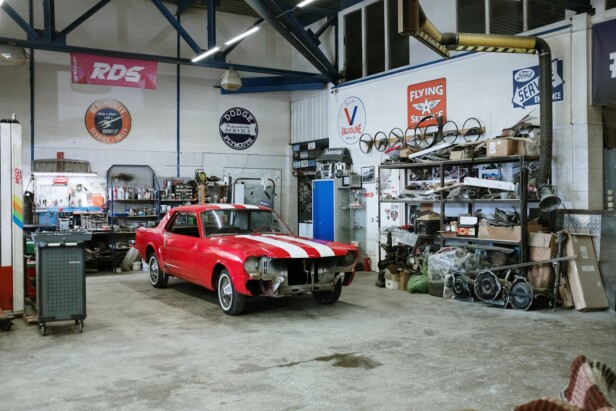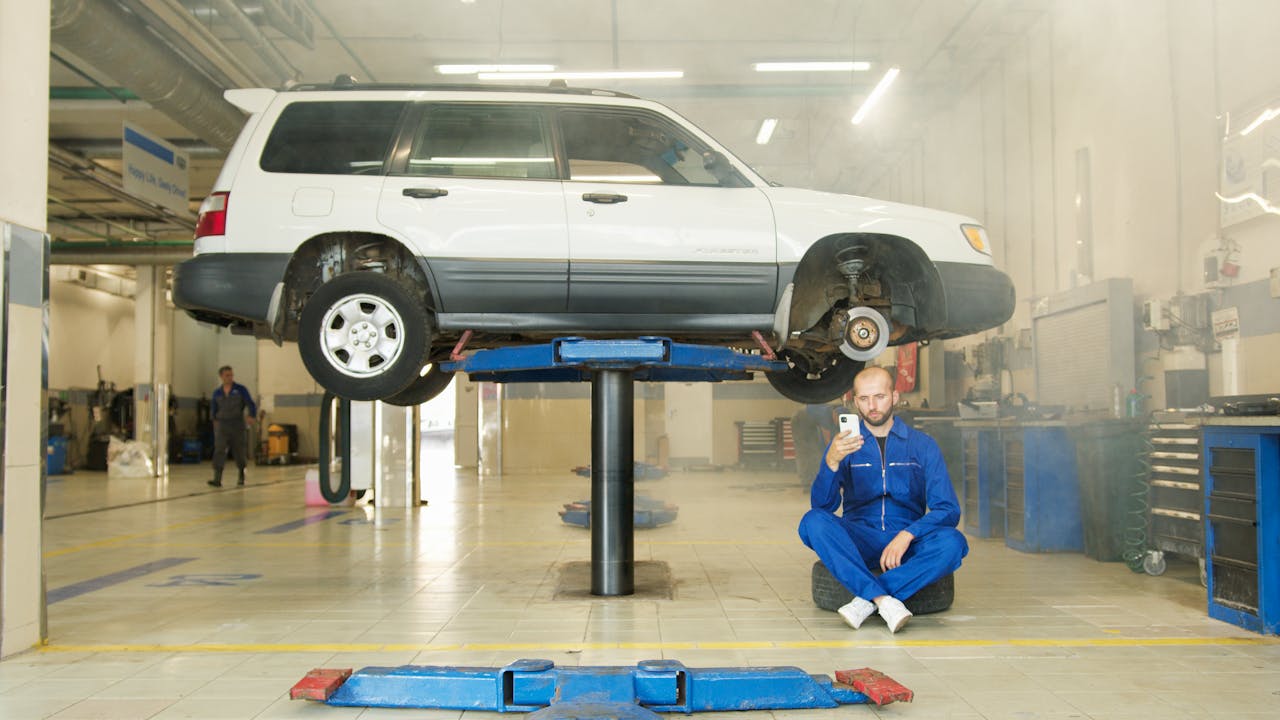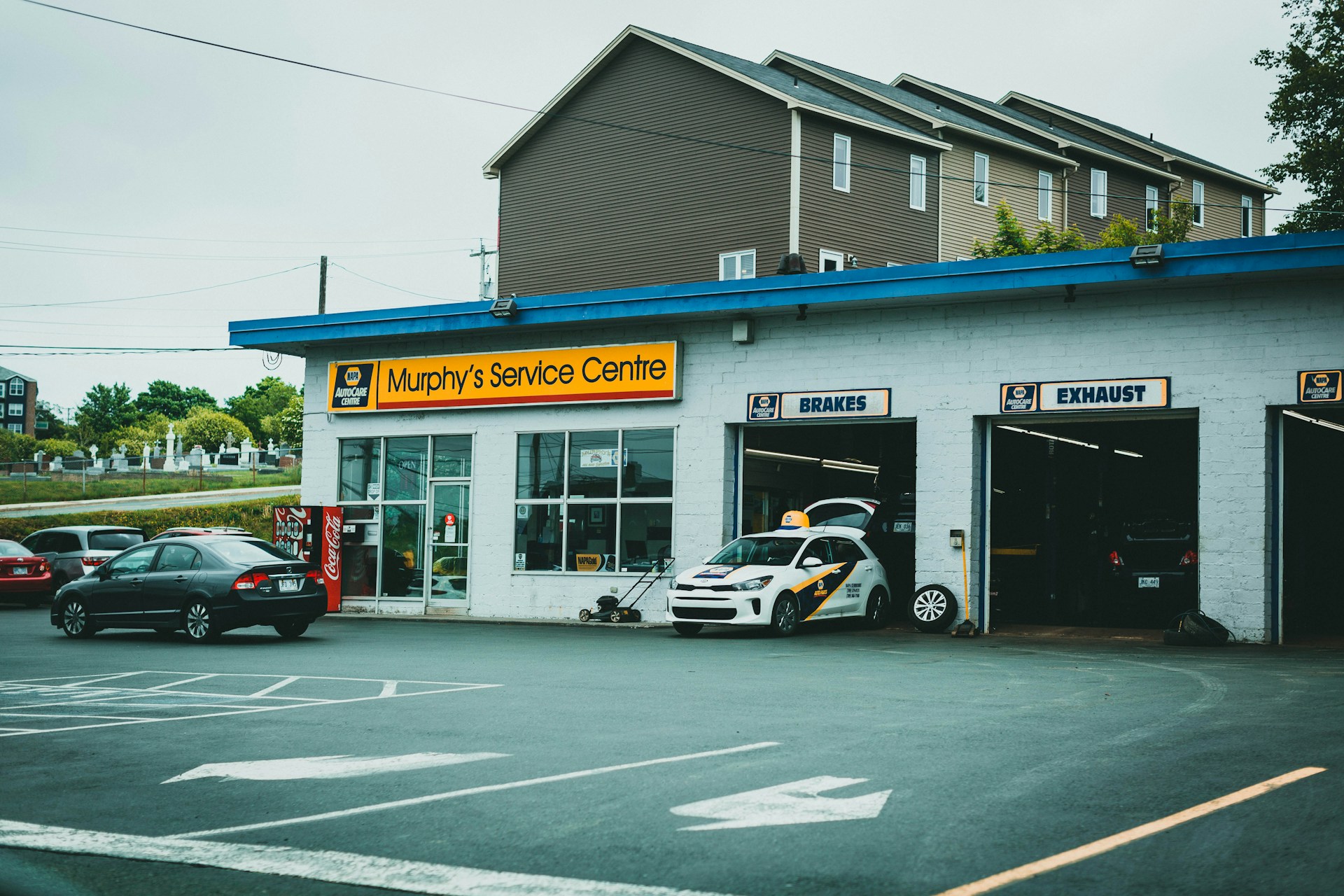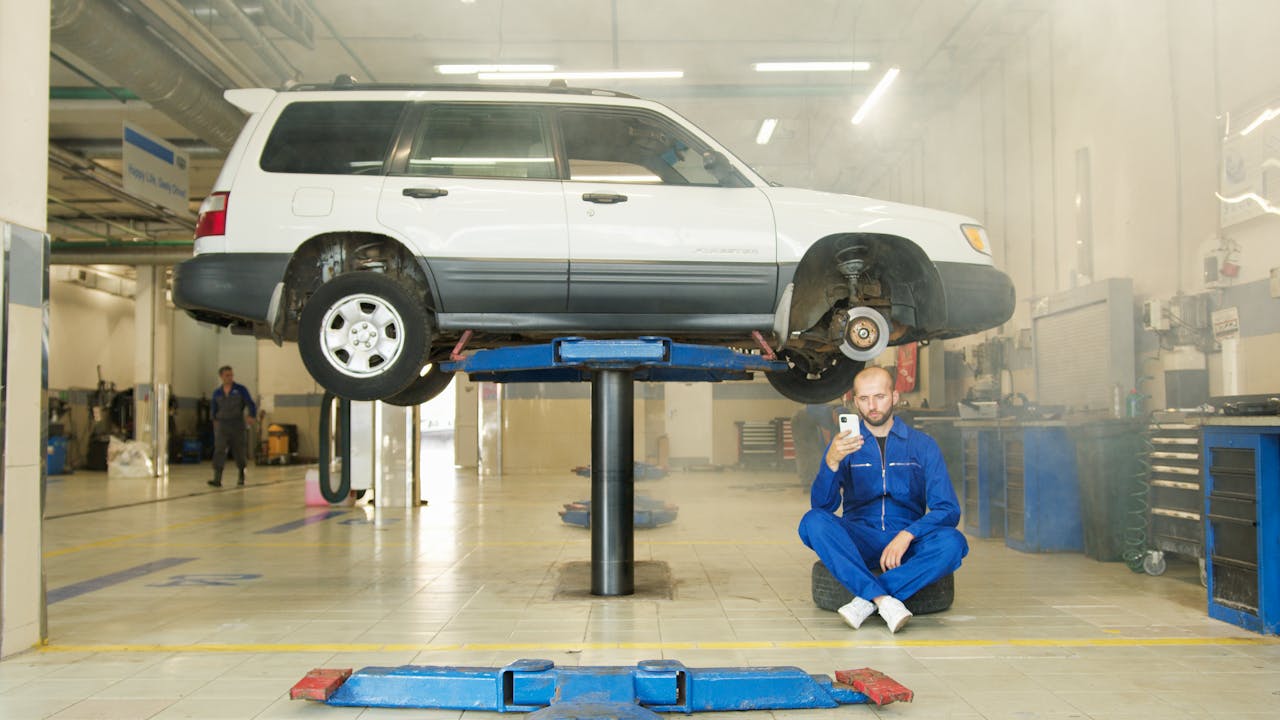Finding subcontractors for automotive buildout Houston requires identifying specialized trade partners familiar with automotive facility demands and local construction methods. Houston’s automotive sector spans diverse facility types from quick-lube centers to full-service dealerships. Each project demands different technical capabilities and regulatory compliance approaches.
We coordinate with trade partners who understand automotive-specific requirements like service pit construction, paint booth ventilation, and heavy-duty concrete specifications. Our approach integrates preconstruction planning with design-build coordination to ensure all trades align with Houston’s construction standards and automotive operational needs.
Which Scopes And Specialties Are Essential For An Automotive Build-Out In Houston?
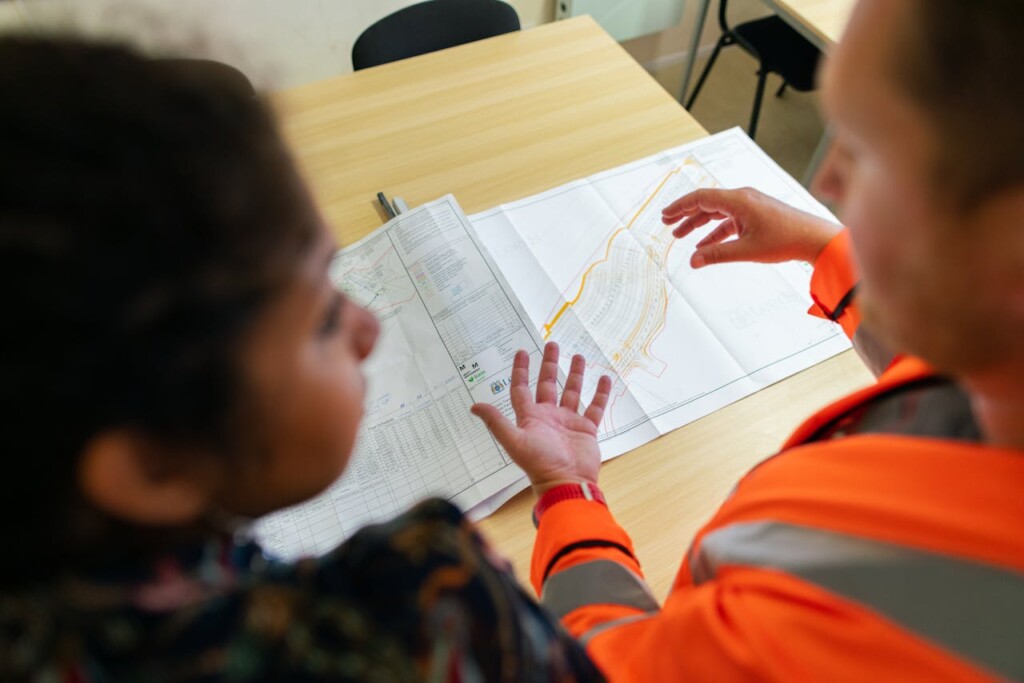
Oil change centers require specialized concrete slabs with integrated service pits and drainage systems for below-grade work. These facilities typically need reinforced flooring to handle hydraulic lifts and heavy vehicle loads. The pit construction demands waterproofing and proper ventilation to meet safety codes.
Service bays present unique structural requirements with higher ceiling clearances, often 14 to 16 feet minimum for lift operations. Large bay doors spanning 10 to 14 feet wide accommodate various vehicle sizes from compact cars to light trucks. The structural framing must support overhead door systems and potential crane installations for engine work.
Auto body shop builds incorporate paint booths that require specialized ventilation systems and fire suppression equipment. Paint booths are a requirement of OSHA and NFPA standards to prevent overspray and volatiles from migrating and causing unsafe conditions. These enclosed systems need filtered air supply and exhaust ductwork, plus electrical work for lighting and control panels.
Pre-engineered metal buildings serve as the primary construction method for many automotive facilities in Houston. These systems provide clear span areas without interior columns, maximizing workspace flexibility. The steel framing accommodates large bay doors and can support overhead cranes or hoists for heavy equipment.
Tilt-wall construction offers another common building system for automotive projects. This method provides durable concrete walls that resist impacts from vehicle traffic and equipment operation. The concrete panels integrate electrical conduits and anchor points for lift installations during the casting process.
Site utilities require careful coordination for automotive operations. Compressed air lines, hydraulic fluid disposal systems, and high-capacity electrical service support diagnostic equipment and power tools. Plumbing systems handle wash bay drainage, parts cleaning stations, and employee facilities with oil-water separators for environmental compliance.
Tenant improvements in existing spaces focus on interior trades that understand automotive workflow. These projects often involve removing existing walls to create larger work bays, upgrading electrical systems for 220V and 440V equipment, and installing specialized flooring that resists oil stains and chemical spills. Finish carpentry includes tool storage systems, parts counters, and customer waiting areas that reflect the operational needs of automotive businesses.
Where Can You Find And Prequalify Reliable Subcontractors Locally?
Establishing a robust subcontractor resourcing strategy requires systematic identification and qualification of trade partners within the Houston market. We maintain an ongoing evaluation process that assesses potential partners across multiple criteria before adding them to our qualified bidder list. The automotive sector demands specialized expertise that extends beyond general construction capabilities.
Regulatory requirements for automotive construction in Houston include specific licensing for trades handling fuel systems, environmental compliance for service pit installations, and adherence to local fire codes for paint booth operations. Our qualification process reviews each subcontractor’s regulatory standing and ensures they maintain current certifications for automotive-specific work. This includes verification of environmental permits, safety training records, and trade-specific licensing requirements.
Design team coordination becomes critical during the prequalification phase as we assess which subcontractors can effectively collaborate on constructability reviews. We evaluate their ability to participate in value analysis sessions and provide input during design development. Subcontractors who demonstrate experience with automotive projects understand the unique challenges of coordinating service pit construction with electrical and plumbing systems.
Local subcontractor events provide valuable networking opportunities for expanding our qualified pool. Houston’s construction associations host regular meetups where we can identify emerging contractors with automotive experience. These events allow us to evaluate potential partners in person and gauge their understanding of service center and mechanic shop requirements. Trade-specific gatherings often reveal specialists who may not appear in traditional databases but possess the automotive expertise we need.
Safety, quality, and scheduling controls form the core of our prequalification criteria. We review each subcontractor’s safety performance history, particularly their experience with automotive hazards such as chemical storage and ventilation systems. Quality benchmarks include their track record with precision work required for service bay installations and paint booth construction. Scheduling reliability becomes crucial given the sequential nature of automotive buildouts, where delays in one trade can impact multiple downstream activities.
How Should You Bid, Schedule, And Manage Trade Partners For An Auto Build-Out?

Successful automotive construction requires structured bid packages that capture the unique features of these specialized facilities. We develop comprehensive packages that address service pits, paint booths, reinforced slabs, and oversized bay doors from the outset. Each package includes detailed specifications for the automotive-specific requirements that differentiate these projects from standard commercial construction.
Structuring Bid Packages For Auto-Specific Requirements
We structure bid packages around the core automotive functions and their corresponding trade requirements. Paint booth installations require specialized ventilation, fire suppression, and electrical systems that standard commercial subcontractors may not understand. Service pit construction demands concrete contractors familiar with below-grade automotive work and proper drainage systems.
Cost modeling helps align project scope with available budgets before we release packages to trades. We analyze material costs for thicker slabs, structural requirements for overhead lifts, and specialized finishes for customer areas. This approach prevents scope creep and ensures realistic pricing from qualified subcontractors.
Coordinating Design Development With Trade Input
During design development, we coordinate closely with the architecture and engineering team to refine constructability before finalizing specifications. BIM coordination becomes essential for automotive projects where mechanical systems, structural elements, and specialized equipment must integrate seamlessly. We run clash detection between HVAC ductwork and overhead door tracks, electrical conduits and lift equipment, and plumbing systems and service pit drainage.
We conduct constructability reviews with key trades during the design phase. This allows us to identify potential conflicts between automotive equipment installations and building systems. Early coordination prevents costly field changes and ensures all trades understand their interfaces with specialized automotive features.
Managing Projects Through Critical Path Scheduling
Critical path scheduling for automotive build-outs requires careful sequencing of specialized trades. Service pit construction must complete before floor finishing begins. Paint booth installation depends on completing the building envelope and installing specialized ventilation systems. We develop phasing plans that account for these automotive-specific dependencies.
Status reporting tracks subcontractor performance against these critical milestones. We monitor shop drawing submissions for specialized equipment and ensure timely approvals from manufacturers and regulatory authorities. Regular progress meetings keep all trades informed of schedule dependencies and upcoming coordination requirements.
Maintaining Quality And Safety Throughout Construction
On-site project management focuses on the specialized safety requirements of automotive construction. Paint booth areas require specific ventilation and fire safety protocols during installation. Service pit construction involves confined space safety considerations that standard commercial projects do not encounter.
We track subcontractor performance through regular inspections and quality checkpoints. Shop drawings for automotive equipment require careful review to ensure compatibility with building systems and local codes. Our project management approach maintains documentation from preconstruction planning through final inspections and closeout, ensuring all automotive-specific requirements are met throughout the construction process.
Conclusion And Next Steps
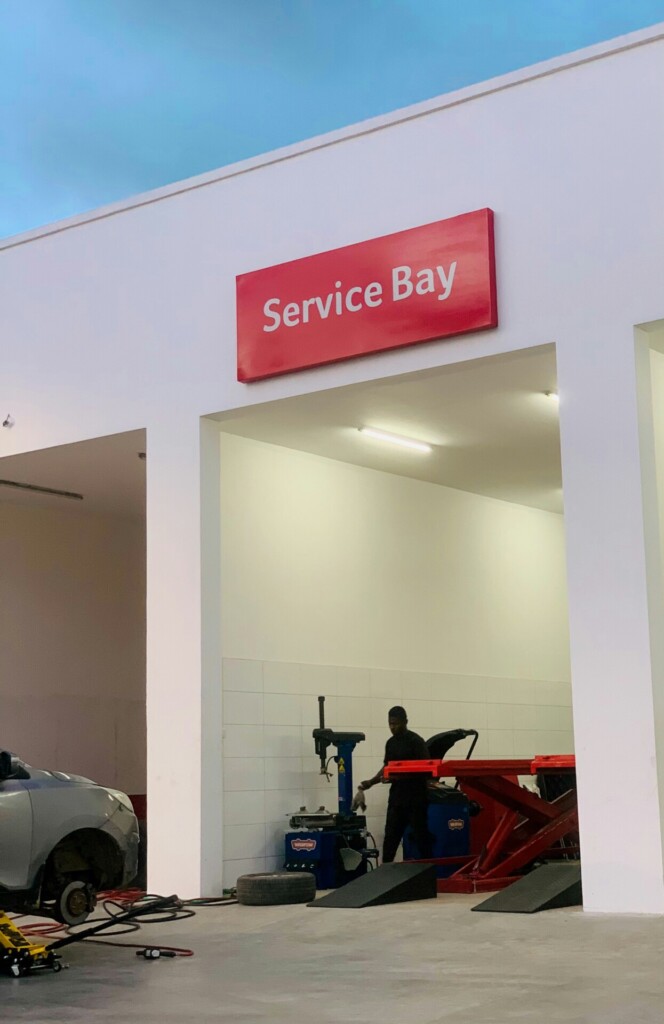
Successful automotive build-out Houston projects depend on clear planning and organized subcontractor management from the start. We establish the building system and automotive program requirements first, then map critical scopes like concrete work, utilities, and specialized features. Prequalifying subcontractors with documented safety records, quality standards, and scheduling capabilities prevents delays and ensures reliable execution across tenant build-out and light industrial construction phases.
Structured bid packages and phasing plans that account for auto-specific operations create smoother project flow. Early design-build coordination helps resolve conflicts before field work begins, while ongoing subcontractor management maintains safety and quality standards throughout construction. Our team coordinates these elements so automotive facilities meet operational requirements and stay on schedule from preconstruction through project completion.
Ready to streamline your next automotive build-out? Contact EB3 Construction for comprehensive subcontractor management and design coordination in Houston.

